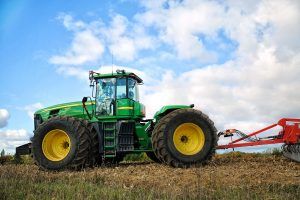Need Immediate help? Call 717-397-1010
After Hours Call / Text 717-471-2168
Need Immediate help? Call 717-397-1010
After Hours Call / Text 717-471-2168
 Farming may seem like an idyllic occupation, but the ability to work with agriculture and animals belies the dangers of the job. Agricultural work ranks among the most dangerous, with a very high risk for both fatal and nonfatal injury despite a number of comprehensive safety regulations having been put in place to reduce them.
Farming may seem like an idyllic occupation, but the ability to work with agriculture and animals belies the dangers of the job. Agricultural work ranks among the most dangerous, with a very high risk for both fatal and nonfatal injury despite a number of comprehensive safety regulations having been put in place to reduce them.
Hundreds of farmers and farmworkers die each year from a work-related injury, and every day roughly 100 agricultural workers suffer an injury that results in needing time away from work.
The most common injuries are a result of vehicle accidents and particularly tractor rollovers, but injuries also result from the use of equipment, heat exposure, falls, strains and sprains, exposure to pesticides and more.
The most common injuries to agricultural workers include:
Agricultural workers are entitled to workers’ compensation for injuries suffered on the job. For information about filing a claim, contact our office to set up an appointment.
 Workers’ compensation is a no-fault form of insurance that covers injuries that workers incur on the job. It is available for the protection of both the employer and the employee. For the employee, it provides compensation for medical expenses for injuries or illnesses that occur on the job, as well as compensation for lost wages and disability if applicable. For the employer, workers’ compensation offers protection against getting sued for injuries that take place on your farm: the availability of insurance precludes the workers’ right to file a personal injury claim. Though there is a Farm Labor Exemption for certain farm sites in Pennsylvania, most farms in the Commonwealth will not qualify for these exemptions, as they generally only apply to extremely small operations who hire workers for very short periods of time.
Workers’ compensation is a no-fault form of insurance that covers injuries that workers incur on the job. It is available for the protection of both the employer and the employee. For the employee, it provides compensation for medical expenses for injuries or illnesses that occur on the job, as well as compensation for lost wages and disability if applicable. For the employer, workers’ compensation offers protection against getting sued for injuries that take place on your farm: the availability of insurance precludes the workers’ right to file a personal injury claim. Though there is a Farm Labor Exemption for certain farm sites in Pennsylvania, most farms in the Commonwealth will not qualify for these exemptions, as they generally only apply to extremely small operations who hire workers for very short periods of time.
Pennsylvania’s Workers’ Compensation Act has a subsection that is specifically devoted to agricultural worksites. This section indicates that workers’ compensation is to be provided for employees if during a calendar year they pay wages to a single employee totaling $1,200 or more, or who employs a single employee for 30 or more days. Even if the farm has just one employee that meets that description, the workers’ compensation insurance coverage needs to be provided for all employees. The employers’ spouse or child under the age of 18 is not considered an employee under the law unless there is a specific written employment contract in place.
Many farm owners in Pennsylvania make the mistake of believing that they do not need to have workers’ compensation insurance because of the agricultural employee exemption, but the only farms for which this applies are generally those who only hire seasonal labor for extremely short periods of time. If an employer is required under the state’s rules does not purchase workers’ compensation insurance, they can be penalized for their failure to do so. They are also likely to be held liable for any injury that occurs on the job as a result of negligence.
If you are an agricultural worker who has been injured on the job, you are entitled to compensation for your injuries, but you need an experienced workers’ compensation attorney to guide you through the process and advise you of your rights. Contact the attorneys at Vanasse Law today to learn more.